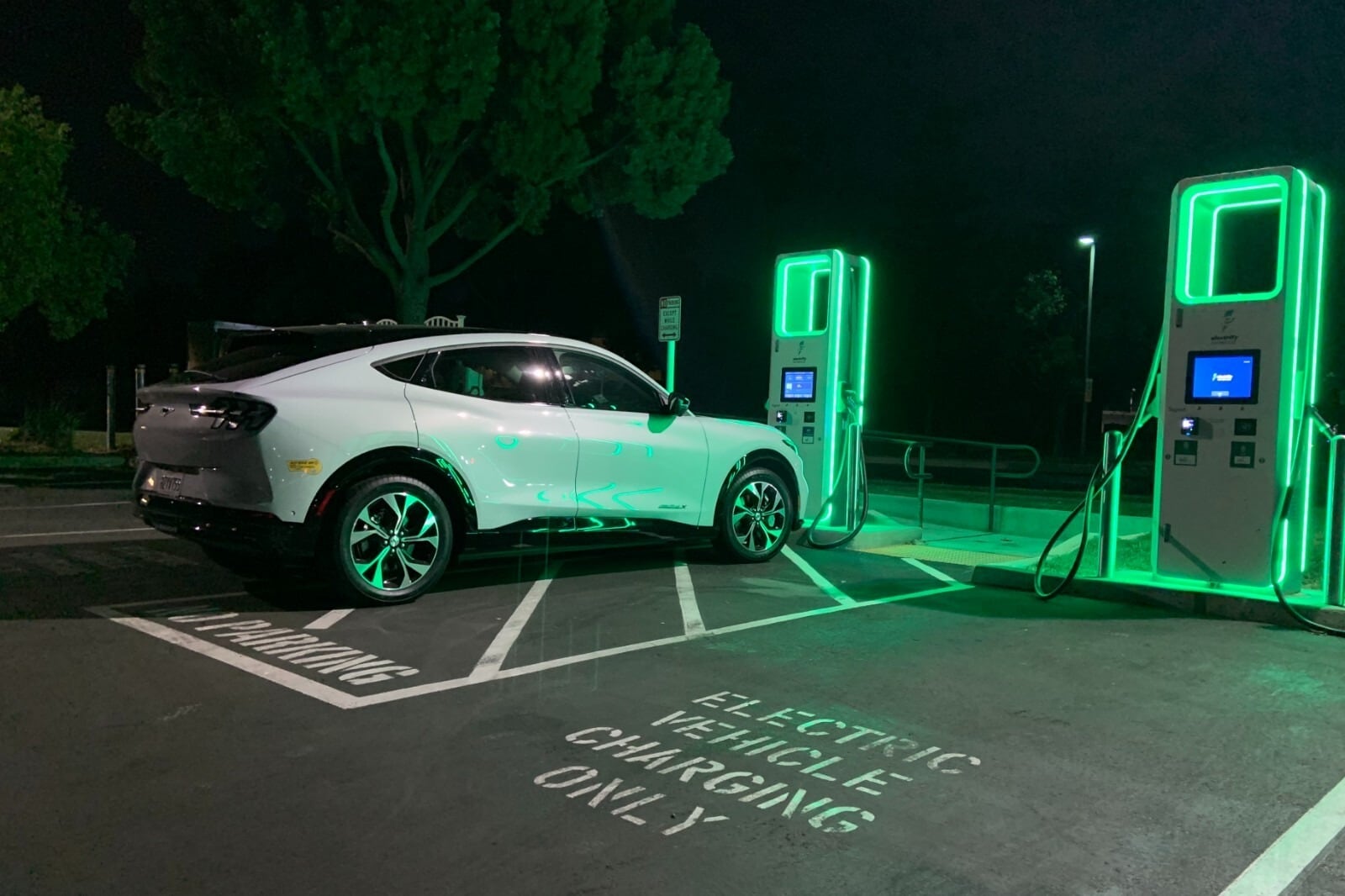Figuring out how much electricity an electric car uses can be tricky. You have to make some assumptions about efficiency, driving style and more. But Edmunds estimates that an average electric vehicle consumes about 394 kilowatt-hours (kWh) a month. That number might not make much sense, but this article will explain how we got that figure, what kWh means, and how much you can expect to pay for electricity.
How much electricity does an electric car use?
Am I Ready for an EV?
- EV ownership works best if you can charge at home (240V outlet)
- Adding a home charging system is estimated to cost $1,616 in
- Edmunds is partnering with Treehouse, an independent provider of home EV installation services. Learn more about the installation services partnership
Think of an EV's battery as a car's fuel tank
All electric vehicles, or EVs, have a large battery pack that powers an electric motor (or motors) that powers the wheels. The amount of electricity stored in the battery is equivalent to how much fuel is in the gas tank of a traditional car. Modern battery packs, which are housed in the floor of the EV, vary in capacity and provide anywhere from 100 to 500 miles of driving range when fully charged.
How much electricity does it take to charge an electric car?
Thinking in terms of electricity is new to most and might not be easy at first. As on your home's electricity bill, electrical usage for an EV is measured in kWh. A kilowatt (kW) is 1,000 watts (W), and kWh measures the amount of kW used per hour. For example, if you had a kitchen blender that used 1,000 watts (1 kW) when turned on and you left it running for one hour, it would have used 1 kWh of electricity.
The battery size of a modern EV can range anywhere from about 30 kWh in a small EV like the Mini Cooper SE to over 200 kWh in a large and powerful EV like the GMC Hummer EV truck.
However, the battery pack capacity just tells you how much electricity can potentially be stored. The amount you drive and an EV's efficiency are the two numbers you need to determine how much energy it takes to power an electric car.
How to find an EV's efficiency
For gas-powered vehicles, we use miles per gallon to measure their efficiency. But because EVs use electricity, the Environmental Protection Agency issues a kWh used per 100 miles estimate for every EV. You can find the rating of any EV on the Department of Energy's website or on the window sticker of an EV.
You will also see an miles per gallon equivalent (mpge) number. This is a conversion of the vehicle's electricity use to an mpg-like number. It can help you better relate to the mpg figures everyone is used to seeing but it's ultimately better to get used to kWh.
The efficiency of modern EVs currently varies. Economical models might use just 25 kWh per 100 miles driven, while a big and heavy electric pickup might use more than 60 kWh per 100 miles.
How much do you drive?
To make things a little easier to calculate, let's convert that to kWh per mile by dividing the number by 100. That means our efficient EV example would use 0.25 kWh per mile. We'll peg our inefficient EV at 0.63 kWh per mile. Now let's factor in how much the average American drives.
The average American drives about 37 miles a day, or about 13,500 miles a year, according to the U.S. Department of Transportation. That means an efficient EV that uses 0.25 kWh per mile will use about 9.25 kWh per day (multiply 0.25 by 37). In a typical month, that would be about 281 kWh used.
On the other end of the scale, an inefficient EV that uses 0.63 kWh per mile will use about 23 kWh per day or about 700 kWh per month. The average efficiency for an EV is 0.35 kWh per mile, according to EnergySage. That totals to about 394 kWh a month for the average driver.
How much does it cost to charge an EV at home?
You need to know how much you're paying for electricity in order to figure out the cost of driving an EV. Electricity rates for homeowners vary widely depending on where you live in the United States. On top of that, how much you pay can vary depending on the type of plan you have with your utility company.
To figure out how much you'll pay for an EV in one year, multiply the vehicle's kWh per mile estimate by how much you drive, like we did above. Then take that figure and multiply it by the cost of electricity. So if an EV uses 0.35 kWh per mile and you drive the national average of 13,500 miles a year, it uses 4,725 kWh per year. If you charge at home and your utility charges you 20 cents per kWh, then that EV will cost about $945 to charge at home in a year (multiply 4,725 by 0.20).
Paying $945 a year might seem like a lot, but compared to a typical gas-powered vehicle, it can be a substantial savings. For a detailed analysis of how much it costs to charge an EV at home, check out our article on the Trust Cost of Powering an Electric Vehicle.
Edmunds says
Figuring out how much electricity an EV uses is easy as long as you know its efficiency and how much you drive. And once you determine how much your utility charges per kWh, you can calculate how much it costs to charge an EV at home. Your electricity bill will naturally increase, but regardless of the amount, charging an EV at home should be more affordable than fueling up a comparable gas-powered vehicle.
